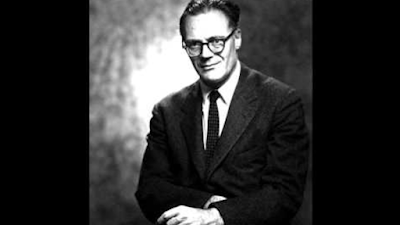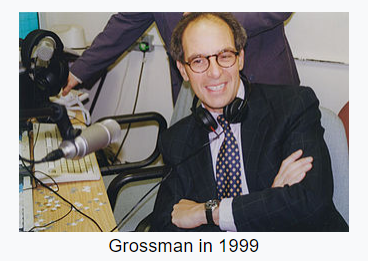10:30 Lois goes out for a walk on the local football field, and she takes her phone with her, which is nice. I've been trying to encourage her to take more pictures, including selfies, to try and master the techniques involved. Good selfies are really difficult to achieve, I think.
She doesn't take any selfies today, as it turns out, but there are some interesting studies nonetheless.
George Plimpton (1927-2003) had the classic patrician upper-class New York accent, which if you didn’t know him, would make Plimpton automatically sound like a snob — except he wasn’t. (Plimpton was largely a sports writer, writing about baseball, the NFL, and Muhammad Ali.) It’s odd to listen to a man who sounds so much like an American “aristocrat” doing commercials for Mattel. Some Americans assume this is a “British” accent. (It isn’t.)
Plimpton’s accent is actually a toned-down version of the almost foreign “Boston Brahmin” accent.
Believe it or not, the Boston Brahmin accent (as far as I know, rare even in Boston today) actually tried to adopt some of the “old plantation South accent,” even though Boston isn’t the South. This was a huge affectation, not a natural development. It was most noticeable in Bostonians like the poet Robert Lowell (1917–1977), who spent some time in Tennessee and Louisiana and admired Southern poets. This wasn’t a typical New England accent, and definitely nothing at all like a stereotypical Boston accent.
In fact, it had more in common with the way poets like John Crowe Ransom and Robert Penn Warren read their poetry. For some reason, Southern accents aren’t considered “posh,” but much of the “upper-class plantation” accent, where some Southerners learned to say “wah” instead of “war,” was part of trying to deliberately sound more like Victorian Britons (not very successfully).
You can hear some of this Southern “posh-ness” in the way Robert Penn
Warren said words like 'are' and 'there', 'mirror' and 'air', 'water' and 'cellar'. There are many accents in the American South, but most Southerners have never
talked like this, not even in Warren’s native western Kentucky:
Then there were Americans who deliberately tried to sound
more “English.” Some of these Americans actually spent a lot time in England,
where the accent rubbed off. (T.S. Eliot, who grew up in St. Louis, sounds
about as English to me as Winston Churchill, whose mother was from Brooklyn.)
William F. Buckley, Jr., was another great example of this “cosmopolitan” American accent. Buckley was a New Yorker, but his mother was from New Orleans, he grew up partly in Mexico (English was actually Buckley’s third language), so in the act of being free of a “local” New York accent, he adopted the “transatlantic” accent — though tinged with a little Southern drawl. [??? - Ed]
T.S. Eliot was born in Missouri — but to a “Boston Brahmin” family. Then he moved to England when he was 25. I’m not sure whether he learned to talk like this in St. Louis or at Oxford, but it’s obviously a far cry from a typical Missouri accent:
If “posh” equals “sounding more like an upper-class person from England,” then there were plenty of Americans who did that. But that cultural urge died out by the 1960s, possibly once Americans had proven that you didn’t need to be English to be “cultural.” At the same time as some Americans were cultivating these accents — which are admittedly beautiful, in their own way — others were deliberately rejecting them.
For all the talk about racial struggle in America, Americans often go out of their way to emphasis what class they belong to (or want to belong to). And often that means by not sounding “English,” which is often (stereotypically) equated with being “posh,” despite the amazing array of accents in the U.K. (For the record, the same thing happens in the U.K. itself. With probably 20 major accents and some lesser known ones, millions of Britons emphasis their class by speaking in a particular way.)
The “non-posh” Midwestern accents now predominate in America. It’s been said that the “standard American” accent today is an Ohio accent. The U.S. has a huge historical diversity of English-language accents. But if what’s said is true, then we’re all slowly being Ohio-ized.
Fascinating stuff !!!! But jolly complicated!
Lois and I wonder what accent it is that TV presenter Loyd Grossman has - is that 'Boston Brahmin'? We're not sure, but we think we should be told!
18:00 Our 10-year-old grandson Isaac has been performing in a musical, "The Big Bad Wolf" at Haslemere Hall, Surrey, today, but we'll have to wait to hear how that went. He's got one of the starring roles as the Big Bad Wolf, and will be singing a solo song.
Our 7-year-old twin granddaughters in Australia, Lily and Jessie, feel a special bond with Isaac, because they all share a birthday, later this month. Earlier today Jessie texted us to ask what's happening here today, so I told her about Isaac's big day.
It's one of the pleasures of mine and Lois's "grandparent-hood" that we get texts from all our five grandchildren now. We got this cute little text from Lily in Australia yesterday.


















No comments:
Post a Comment